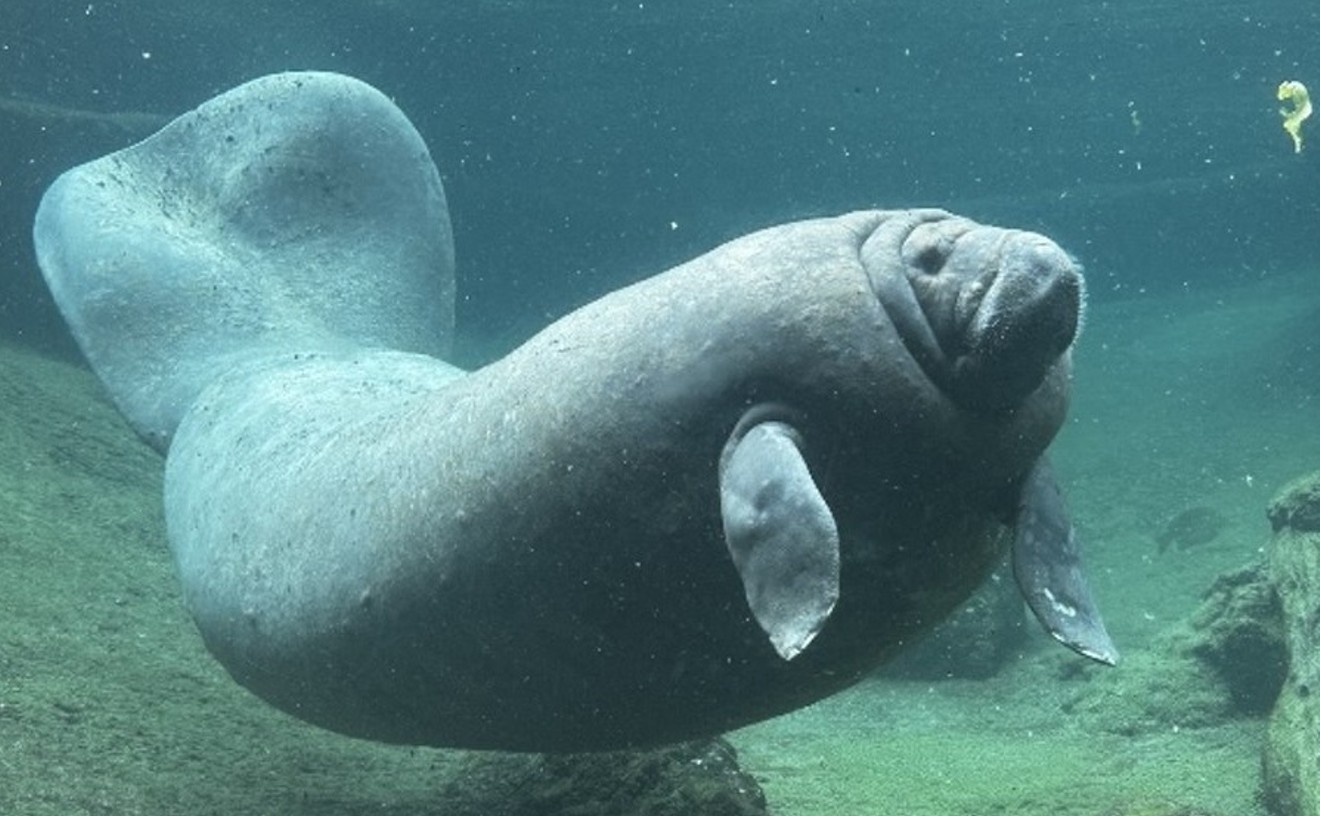Former film critic Pauline Kael once depicted Welles as a man "encased in makeup and his own fat, like a huge operatic version of W.C. Fields." After viewing the affably charming Don Juan DeMarco, I'm saddened to report that the same description now applies to Brando, only worse. At least Welles's hair looked real. Brando sports a carefully tousled 'do that sits atop his head like a mat of tangled seaweed on a swimmer just emerging from the ocean.
Under normal circumstances an actor's weight or tresses should have little relevance to any critical analysis of his acting. But Brando's size is impossible to ignore; the shock of seeing a man who once epitomized brooding American manhood bloated to such leviathan proportions detracts from his performance by preventing the suspension of disbelief so critical to full enjoyment of the moviegoing experience. Simply put, every time Brando appears in anything but the tightest closeup, you reflexively gasp at his hugeness; there's enough of him to balance out John Goodman and Roseanne on a teeter-totter. Fortunately, this film's success does not hinge on dramatic fireworks from its corpulent star.
Brando, an actor suffering from career burnout, plays Dr. Jack Mickler, a psychiatrist afflicted with the same malaise in Don Juan. Poor Faye Dunaway, her hair piled up in a coiffure that would positively wow them at the Grand Ole Opry, gamely tackles the thankless role of Jack's loyal but neglected wife, Marilyn. The story of how Jeremy Leven, a former clinical psychologist and author, managed to land two such intimidating screen veterans in his directorial debut probably would make for a pretty interesting yarn in its own right. To his credit, Leven draws believable portraits of Dr. Mickler and his clinical colleagues. Unfortunately he also demonstrates the visual flair you might expect of a man taking his first spin behind the camera. Mismatched cuts and other beginner's errors plague Don Juan. Perhaps the presence of Brando and Dunaway intimidated the hell out of the novice filmmaker; Don Juan feels like the shaky handiwork of a neophyte with first-film jitters. Few would mistake Leven's directorial dexterity for that of the film's producer, a fellow name of Coppola.
Dr. Mickler, a few days short of retirement, has been going through the motions for some time now, both at work and at home. Brando, who knows a thing or two about ambivalence toward his job ("Acting is an empty and useless profession," he once declared), wears Mickler's apathy like a tailor-made suit. The jaded doctor and his anesthetized missus live a bland but comfortable upper-middle-class existence until the day the cops call in Jack to help convince a darkly handsome young man wearing a cape and a mask and wielding a sword to vacate his perch atop a tall billboard.
The kid, distraught over a lost love, claims to be the legendary Don Juan. Johnny Depp, who has proven to be a surprisingly versatile thespian over the course of a string of quirky roles (from Ed Scissorhands to Ed Wood), more than holds his own as the lovestruck womanizer with an Antonio Banderas accent. You young whippersnappers who know of Brando only from his post-Godfather period and have never seen him in his prime as, say, Stanley Kowalski in A Streetcar Named Desire or as the original black leather-clad biker in The Wild One, should take note: Brando once epitomized brooding studhood to his generation just as Depp embodies the ideal Nineties manchild today. Modern cinema offers few object lessons in the ravages of time as striking as the contrast between the former sex symbol and the current one.
Dr. Mickler plays along and talks down Don Juan from the billboard; later, intrigued by the intensity of the young man's conviction, Mickler takes him on as a patient. The shrink has ten days to evaluate, diagnose, and recommend treatment for the masked marauder, or the kid will be committed to a mental hospital indefinitely.
During the ensuing sessions, Don Juan chips away at Mickler's professional detachment. The doctor finds himself blurring the line between fantasy and reality, which is not a good thing for a man whose livelihood depends on his ability to tell one from the other. No one can find any official record A birth certificate, driver's license, social security number A of Don Juan's existence. The young man captivates his therapist with fantastic tales of adventure, seduction, and intrigue. His zest for living and passion for his one true love have a salubrious effect on the drooping analyst; Mrs. Mickler, much to her grateful surprise, begins to get a little regular action. (Don't worry. There aren't any graphic Last Tango-esque love scenes. In fact some of the film's winningest moments involve Brando and Dunaway defusing rather than igniting sexual tension in the boudoir.)
And that's about it. Your basic innocuous little romantic comedy. Don't let the heavy hitters in the cast and the spiritless-psychoanalyst-who-learns-about-passion-from-one-of-his-patients angle fool you; Don Juan DeMarco is no Equus. Brando and Dunaway still can deliver the acting goods, but for material this light, Ted Danson and Shelley Long would have provided sufficient cutes. Johnny Depp is another story. While any moderately attractive young actor would have looked handsome next to the simultaneously inflated and dissipated Brando or the pinched and big-haired Dunaway, Depp credibly fleshes out the celebrated lover. With a lesser actor in the title role, Don Juan would have struck out. Thanks primarily to Depp, it scores.










